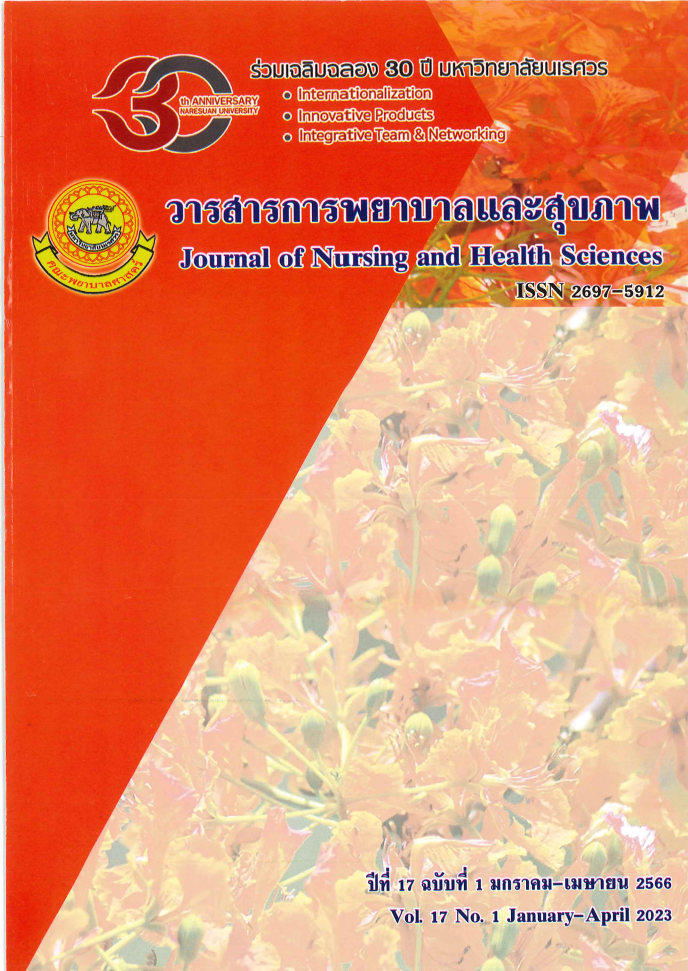The Challenge for Nursing Administrators in Human Resource Management: Generation Z Professional Nurses’ Group
Main Article Content
Abstract
This article aims to present an idea of human resource management in generation Z nurses which emphasizes response to their needs and work expectations. This article also suggests guidelines for the generation Z nurse administrator which include 5 main topics: 1) Job design: considering work design for generation Z which consists of autonomy, skill variety, task identity, task significance, and feedback. 2) Human resource development: encouraging professional development 3) Participation: listening, respecting others' ideas, and creating good communication in the workplace 4) Shared values in the workplace: social and altruistic work values, moral and ethical work values 5) Performance management and compensation: performance evaluation and providing fringe benefits or rewards. This guideline would be beneficial for administrators to enhance motivation and job retention of generation Z nurses in nursing organizations. Also, the guideline can be applied for being conceptual frameworks of studies in terms of future research development.
Article Details

This work is licensed under a Creative Commons Attribution-NonCommercial-NoDerivatives 4.0 International License.
References
Boonsanan, S. (2022). The commitment of professional nurses to the organization Pak Tho Hospital. Journal of Research for Health Improvement and Quality of Life, 2(1), 51-61. [In Thai].
Chicca, J. & Shellenbarger, T. (2018). Connecting with generation Z: Approaches in nursing education. Teaching and Learning in Nursing, 13, 180-184.
Chompukum, P. & Chakrapeesirisuk, N. (2020). Factors affecting job satisfaction and motivation: A case comparison of generation Y and generation X in Bangkok. Chulalongkorn Business Review, 42(3), 1-18. [In Thai].
Chupan, S. (2018). Generation Y professional nurses: A challenge for nursing administrators. The Nurse Alumni Association of the Ministry of Public Health, 28(1), 1-12. [In Thai].
Ferry, K. N. (2019). Building up organizational commitment of generation Z. FEU Academic Review, 13(3), 10-25. [In Thai].
Hampton, D. & Welsh, D. (2019). Work values of generation Z nurses. The Journal of Nursing Administration, 49(10), 480-486.
Iftode, D. (2019). Generation Z and learning styles. SEA - Practical Application of Science, 7(21), 255-262.
Keawpongmongkol, N. & Popaitoon, P. (2020). Intention to stay of generation Z: The roles of knowledge characteristics and work engagement. Songklanakarin Journal of Management Sciences, 38(2),168-197. [In Thai].
Kumchuen, E. & Sivapitak, S. (2020). The relationship between work values and entrepreneurship of generation Y in Bangkok. Suthiparithat Journal, 34(112), 94-109. [In Thai].
Nursing Division of Ministry of Public Health Thailand (2018). Roles and responsibilities of professional nurses. Nonthaburi: Suetawan Printing [In Thai].
Office of the National Economic and Social Development Council. (2021). Health Statistics. Retrieved 26 November 2022 from http://bit.ly/3AQWL68. [In Thai].
Saenung, S. & Oumtanee, A. (2020). How to communicated in generation Z nurses. Journal of The Royal Thai Army Nurses, 21(2), 286-294. [In Thai].
Sanguanpak, S. (2020). Factors affecting turnover intention of generation Z professionals nurses in a university hospital. Master Thesis (Management), Mahidol University, Nakhon Pathom. [In Thai].
Sawaengdee, K. (2019). The reforming plans of human recourse management and health service missions of Ministry of public health. Nonthaburi: Suetawan Printing [In Thai].
Sreeprasarn, P., & Sujintawong, S. (2019). Generational models in nursing administration in the ambulatory care nursing service division. Journal of Public Health Nursing, 33, 87-105. [In Thai].
Suwannarat, C., Kasem, S. & Chuthai, R. (2021). Human resource management for developing organizational commitment of generation Y. FEU Academic Review, 15(1), 10-28. [In Thai].
Taiwong, A. & Chitpakdee, B. (2021). Generation Z registered nurses of the health system in Thailand: Challenging management strategies for nursing administrators. Royal Thai Navy Medical Journal, 48(1), 199-209. [In Thai].
Thanchaikon, A. (2019). The close-relation in organizational according. Journal of Roi Kaensarn Academi, 4(1), 32-46. [In Thai].
Unhalekka, A. (2021). Job design by job characteristic theory for enhancing employee’s work engagement and job performance. Journal of Humanities and Social Sciences Valaya Alongkorn, 16(1), 15-30. [In Thai].
Wongprasit, N. (2015). Employee engagement: The challenge for diverse human resource management of private hospitals in Thailand. Journal of Community Development Research (Humanities and Social Sciences), 8(1), 16-31. [In Thai].
Wongthai, S., & Oumtanee, A. (2020). Working with multi-generation colleagues: Perspectives of generation Z nurses. Journal of The Thai Royal Army Nurses, 21(1), 96-104. [In Thai].


